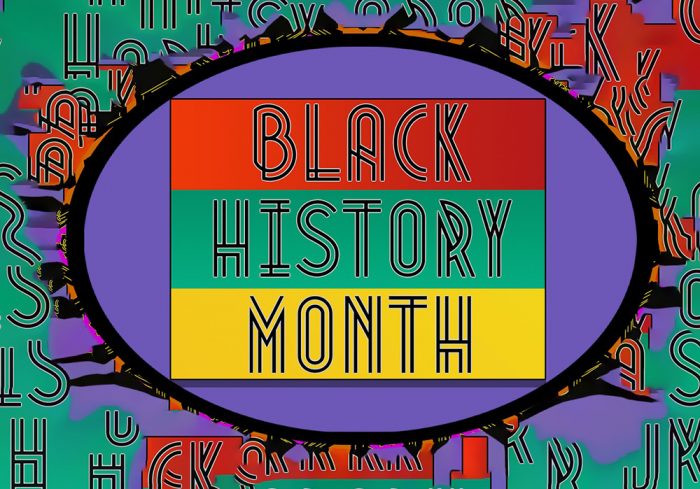Reminder — RCPA to Host Webinar Featuring Sen. Phillips-Hill and Rep. Grove on Integration of Health Services in PA
An Evening With Dr. Ibram X. Kendi — March 9

Pittsburgh Arts & Lectures presents Dr. Ibram X. Kendi, author of “How to be an Antiracist” and “How to Raise an Antiracist,” at 6:00 pm on Thursday, March 9, 2023, at the Carnegie Library Lecture Hall in Oakland.
Dr. Kendi is appearing with the release of his new children’s book, “The Making of Butterflies,” a retelling of work by Zora Neale Hurston from her folktale anthology “Mules and Men.” His conversation with Dr. Valerie Kinloch, Dean of University of Pittsburgh’s School of Education, will focus on the importance of these works of literature within the framework of his antiracism work. In-person and virtual tickets are available. For more information, visit their website.
RCPA to Host Webinar Featuring Sen. Phillips-Hill and Rep. Grove on Integration of Health Services in PA — March 14
Pennsylvania’s 2023 Health Equity Conference Announced for April 4
Tuesday, April 4, 2023
9:00 am — 3:00 pm
Register Here
Registration for the 2023 Health Equity Conference is now open!
Join the Office of Health Equity for a day of expert speakers as they provide valuable insight on health equity, whole person care, and chronic disease prevention. The conference will be held on April 4, 2023, from 9:00 am – 3:00 pm and is entirely virtual. Hear from our keynote speakers before heading into a breakout room of your choice to get more in-depth information on a variety of health equity related topics. Registration is open until April 3, so don’t miss out on an opportunity to connect with others in the field from the comfort of your own home.
Questions about this year’s summit? Please contact Judelissa Rosario or Emily Lebo for support. We hope to see you there!
Relias Offers Free DEI Training Webinar — Tuesday, February 28
Harrisburg Forum Stresses Need to Improve State of Black Health in PA
Making Black History Month a Joyful Celebration
Introduction: The Purpose of the Celebration
Black History month is an annual celebration of achievements by African Americans and a time for recognizing their central role in U.S history. It is also an opportunity to educate the public about the rich history and culture of Black people, and to acknowledge and address the ongoing struggles for equality and justice.
Raising Awareness of Unintended Trauma
Black people in America are bombarded with the traumatic events of yesterday and today. Each tweet, news segment, video, and conversation can potentially reopen wounds caused by an innumerable number of current and historical events. These events can serve as vehicles for trauma, both direct and vicarious. Racial Trauma or Race-Based Traumatic Stress (RBST) is an important topic to explore. Research indicates that generational and historical trauma have a lasting impact on the health and well-being of Black Americans. The real impact of constant exposure to trauma must be recognized.
Black History Month is an opportunity to highlight the exceptional, the uplifting, the positive in African American culture. Focusing on the positive allows members of the Black community to celebrate without the heavy work of wading through the issues that still exist. Raising awareness around possible unintended trauma caused by sharing race-related content is essential. Things to consider:
- Think critically before sharing content of racial violence and consider the potential impact on members of the Black community.
- Become educated about why the effects of racial violence, racial inequities, and trauma can be triggering. Understand that it is not just about being sensitive but about considering the impact on others.
- Reflect on the context and consequences of sharing specific content; consider the purpose or intention of sharing.
- Use trigger warnings when sharing content about racial violence and provide resources for people who may be affected. Employ the principles of trauma-informed communication.
- Encourage dialogue and provide support for people affected by racial violence, racial inequities, and trauma.
Acknowledge Adversity, Celebrate Achievements
The historical and current achievements and contributions of Black Americans are profound — despite facing overwhelming adversity. Acknowledgement of difficult circumstances can serve to highlight the accomplishments made in spite of existing hardships. In doing so, it is crucial to remember that the end goal is the celebration.
Ways to Commemorate Black History Month in a Positive Way
- Visit museums that showcase Black history, culture, and contributions.
- Share online resources.
- Support Black owned businesses and restaurants.
- Attend local Black History Month events.
- Follow Black content creators and artists; purchase their art.
- Read works by Black authors.
- Acknowledge achievements year-round, in real-time as they occur. #beyond28
Dig Deeper — Learn More Through These Resources
- Black Past
- CNN article — We Need More Trauma-Free Blackness
- Affirming Black Lives Without Inducing Trauma
- Conference Allegheny Providers (CAP) Newsletter — Traumatic Stress
- Race-Based Traumatic Stress — Association for Behavioral & Cognitive Therapies
- 5 Ways to Celebrate Black Joy — Michelle Lawrence
Suggested Search Terms
- Black Joy
- Race-Based Traumatic Stress
- Positive Ways to Celebrate Black History Month
- Trauma-Free Blackness
Black Women and the Struggle of Health Care Access
















